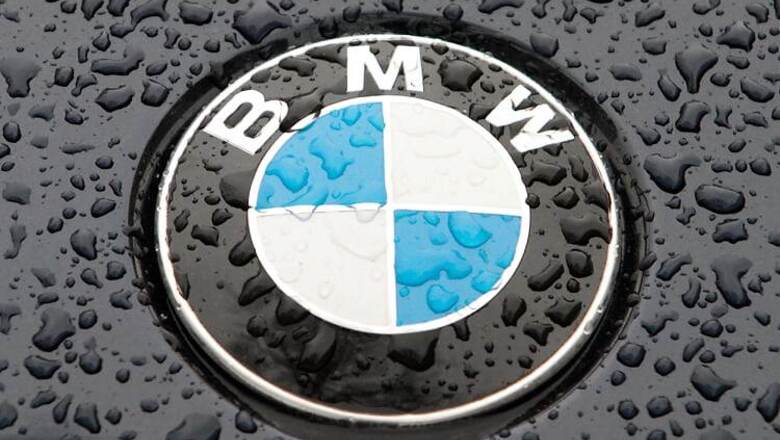
views
Frankfurt: BMW is set to announce an alliance to develop self-driving cars with collision detection specialist Mobileye and computer chip maker Intel, a source familiar with the matter said, as the race to put driverless cars on the road heats up.
The tie-up is likely to focus on technology being developed by Mobileye to give computer-driven vehicles better reflexes without driver input, ushering in an era of self-driving cars early in the next decade, analysts said.
The three companies said they would hold a joint news conference on Friday, without giving details. It will be attended by BMW Chief Executive Harald Krueger, Intel CEO Brian Krzanich and Mobileye Chairman and Chief Technology Officer Amnon Shashua, they said.
Automakers and technology firms are striking new alliances to commercialise self-driving cars after being caught off guard by big investments by Silicon Valley companies such as Google, Tesla and Apple into the field.
This week German carmakers, auto-suppliers and map makers HERE and TomTom agreed a standard that would govern how road and vehicle performance data is transmitted from Internet-connected cars to cloud-based online services, enabling more automated traffic management and car management services.
Earlier in June, BMW, the world's largest luxury carmaker by sales, said it would launch a new flagship model with autonomous driving capability in 2021.
Intel is the world's biggest computer chipmaker and has been seeking to break into the market for automotive chips where rivals NXP, Renesas , Infineon and STMicroelectronics have long held sway.
Mobileye is the top supplier of camera-based sensor systems used in driver assistance systems in the latest generation of vehicles. These systems are used for changing lanes and to detect other cars or pedestrians but are expected to evolve to include mapping and automated decision-making features.
Autonomous driving alliances
Terms of the three-way deal are not yet known, nor is it clear how the pact between Intel and Mobileye might affect the Israeli firm's long-standing partnership with French-Italian chipmaker STMicroelectronics, which manufactures Mobileye sensor systems.
A spokesman for STMicroelectronics declined to comment.
In May, Mobileye and STMicro said they had agreed to extend a 12-year-old partnership to develop a fifth-generation Mobileye system, which they said would provide fully autonomous driving features for cars due to hit the road around 2020.
These new systems will revolve around a computer chip, or central processing unit, that controls some 20 sensors throughout each vehicle, including the windshield and car bumpers, connected to radar systems, Mobileye and STMicro said.
BMW, which has been a key customer of Mobileye systems dating back to its first-generation of sensors in 2007, is one of five automakers expected to deploy Mobileye's fourth-generation safety systems for new cars beginning in 2018, which primarily focus on object detection as cars move down the road.
Citi said in a research note that a BMW-Intel-Mobileye tie-up was likely to focus on Mobileye's fifth-generation chips, dubbed EyeQ5, which move beyond safety features to offer real-time road mapping and driving policy, which dictates how a vehicle interacts with other cars or roadside objects.
In recent months, Volkswagen Group, General Motors and Nissan agreed to use EyeQ5 systems in future car fleets and Tesla Motors has re-committed to using Mobileye technology for hands-free driving in its electric cars.
Speaking at a William Blair investor conference in mid-June, Mobileye Chief Financial Officer Ofer Maharshak said his company would have more customers for these new systems to announce in coming months.
"You know three are already engaged, Nissan, VW, and GM. We are going to have four or five - between four to five others in the next months, up to the beginning of 2017," he said.




















Comments
0 comment